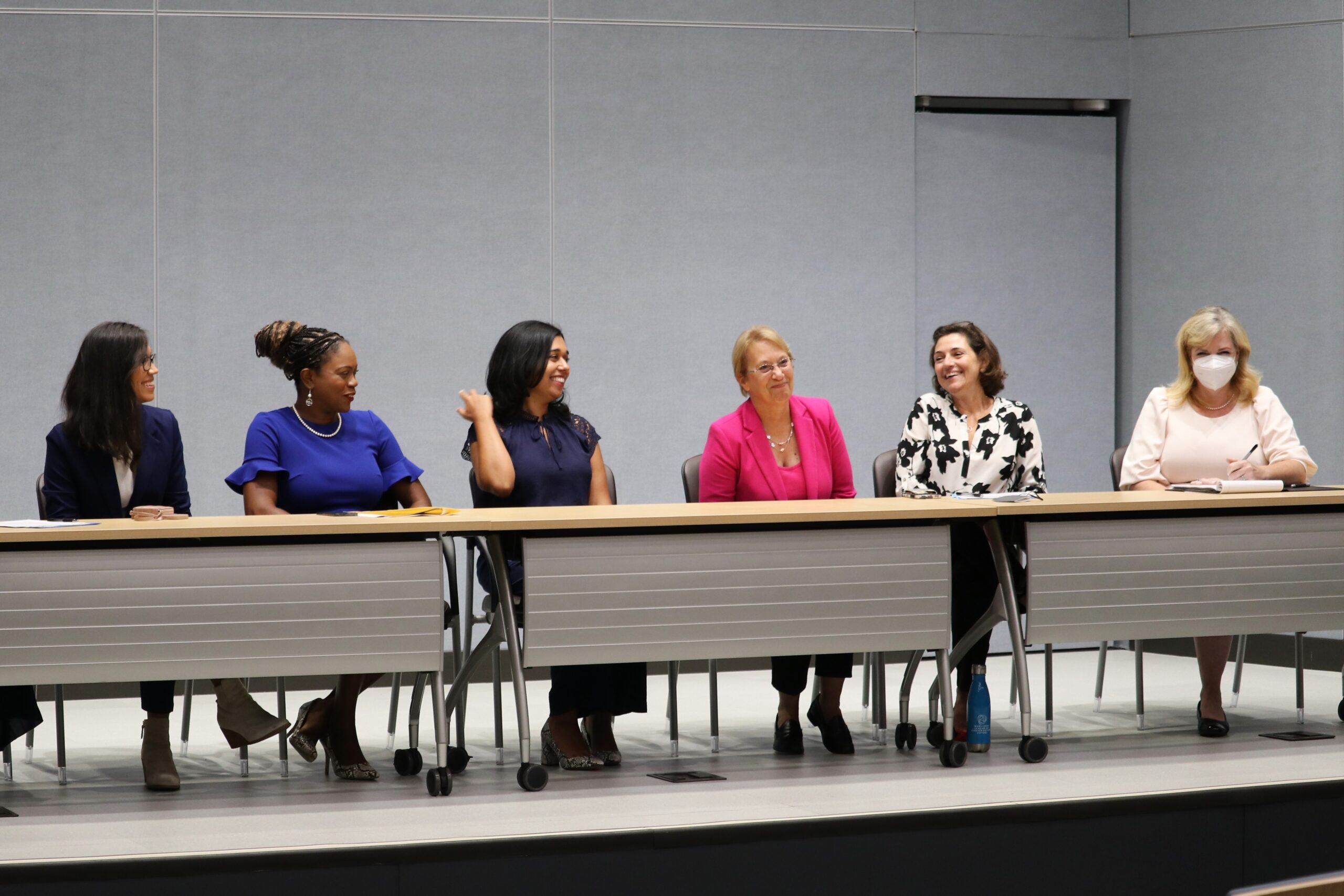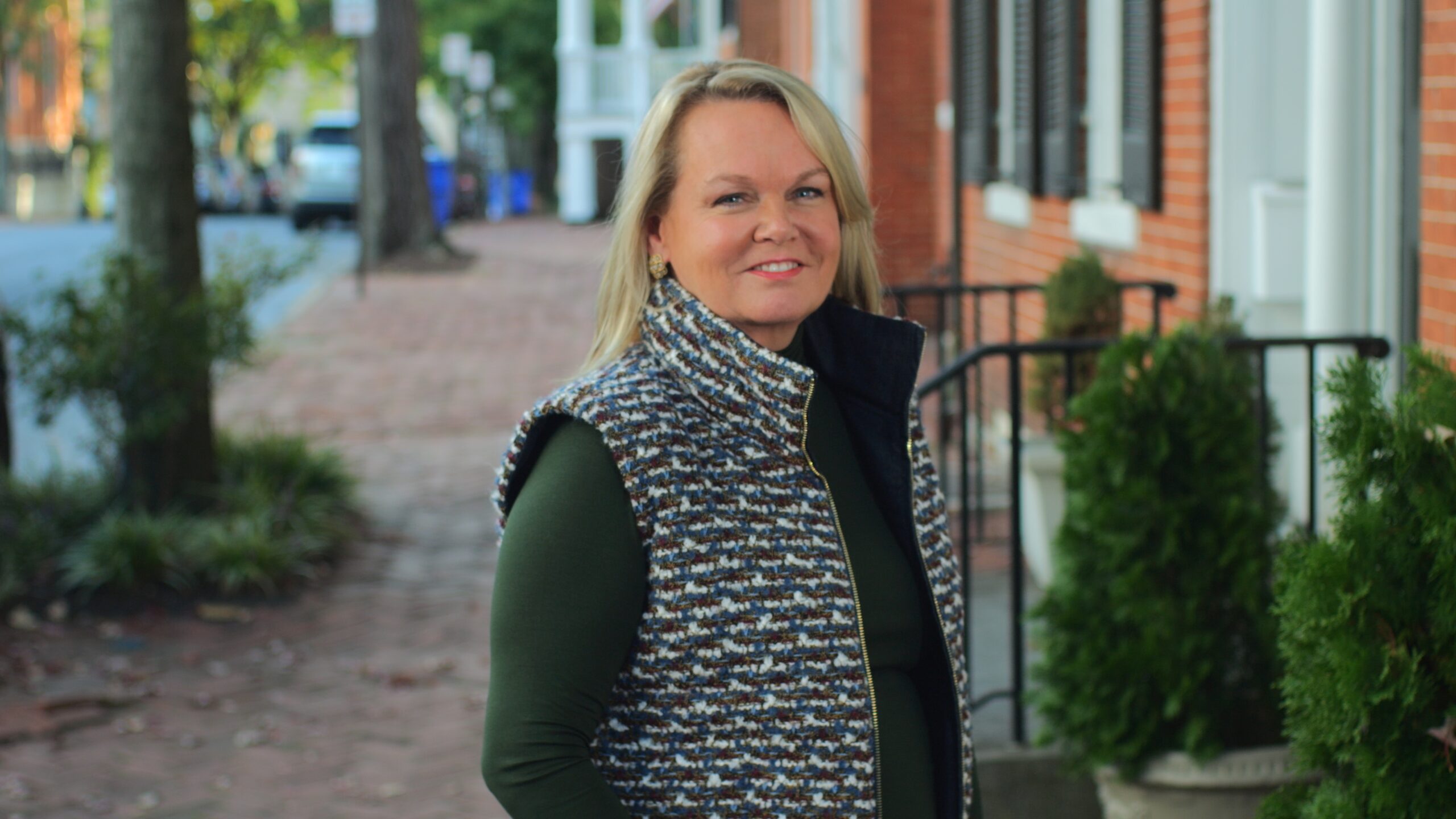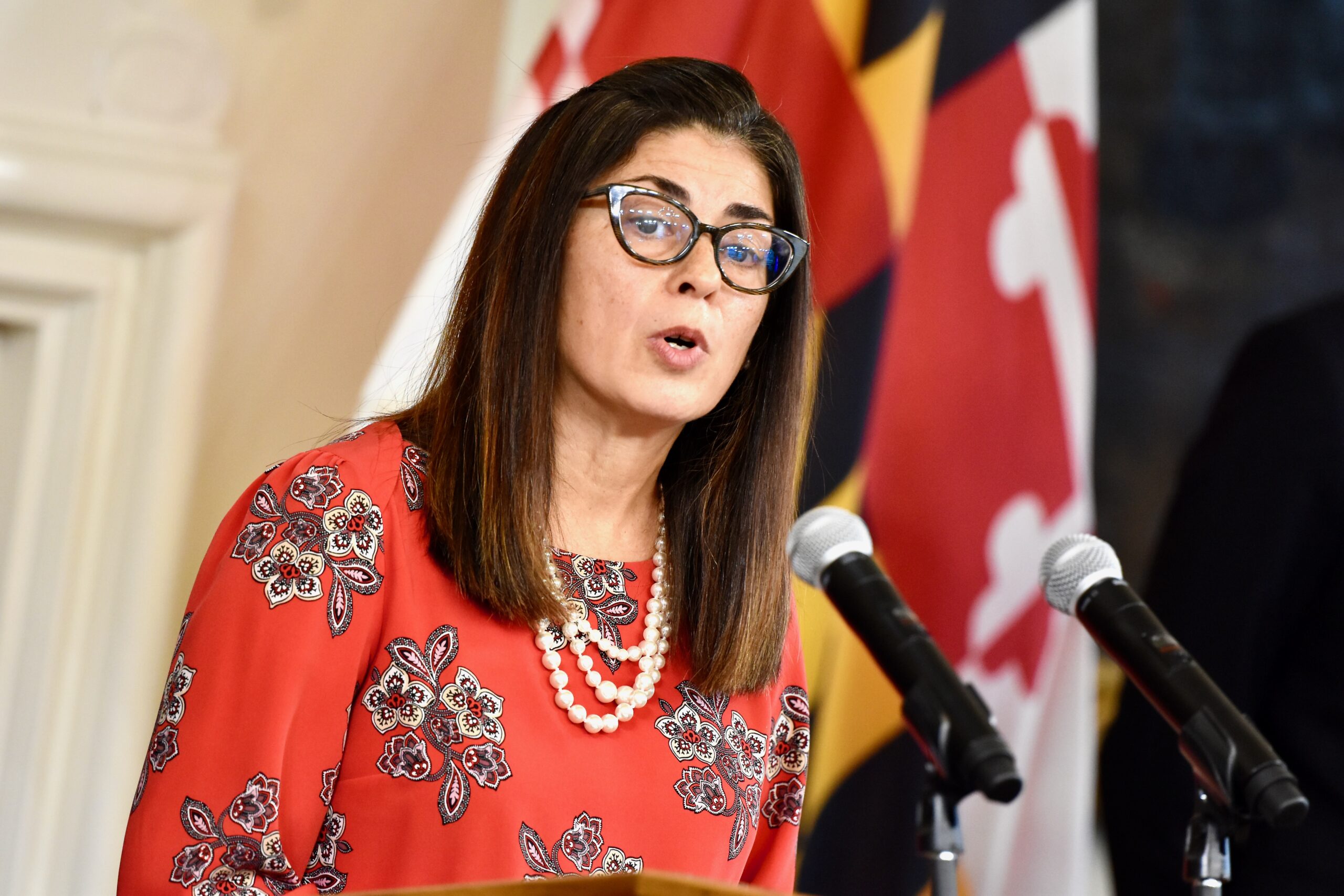Dramatic shift: Montgomery County Council likely to see first female majority in decades

Sitting side-by-side at a long table in the Montgomery County Council office building last week, it was easy to see just how different the council’s new makeup could be, come December.
Six Democratic women, all favored to prevail in November’s general election in the county where Democrats outnumber Republicans four-to-one, will likely establish the council’s first female majority since the 1980s.
Their success in the Democratic primary comes four years after Councilmember Nancy Navarro (D) emerged as the only successful woman candidate in 2018.
“The 2018 election is when we woke up the next day and realized that there was only going to be one woman on the county council, even though some really fabulous, qualified women had run,” said Marilyn Balcombe, who finished fifth in the top-four primary for the council’s at-large seat that year. An astonishing 33 Democrats sought the nomination.
Now, Balcombe has prevailed in the primary for Council District 2, which includes Germantown, Damascus and Clarksburg.
The other Democratic women who won their July 19 primaries are Natali Fani-González, Dawn Luedtke, Kristin Mink, Laurie-Anne Sayles and Kate Stewart.
If successful in November, they will represent the largest-ever cohort of women councilmembers in Maryland’s largest county.
Contributing to the council’s forthcoming overhaul was an expansion to 11 seats — with two new districts carved from communities intended to better represent the county’s non-white majority — and three seats opening up because of term limits.
But Balcombe and the other women who won in the Democratic primary said the political playing field for women can still be unfair.
“I felt like I had to continually convince people of my qualifications. Even though I have a long list of accomplishments and credentials, I continually have to convince people that I’m the real deal,” Balcombe said at a “celebration roundtable” organized by the county chapter of the National Organization of Women on Women’s Equality Day last week.
All six of the Democratic nominees attended.
Sayles talked about the pressure on women candidates to present themselves ultra-put-together at all times — on top of the typical politicking and campaigning.
“We had to ensure that our message resonated with the people,” Sayles said. “A lot of people assume that just because we’re women we’re going to focus on so-called ‘women’s issues,’ and so I always fight back and say ‘Well, what are men’s issues?’”
Stewart, who has been mayor of Takoma Park since 2015, said during this, her fifth run for public office, she still faces some of the same questions she did the first time around.
Even though her children are in college, she was still asked on the campaign trail this year how she would balance caring for them and county council.
“I do think there are questions we get that our male colleagues don’t,” Stewart said.
Mink, who could become the first Asian American elected to the Montgomery County Council, said she received a graphic death threat not long after launching her campaign.
She’d hoped the harassment wouldn’t happen, but wasn’t surprised.
“This is an issue that we have to consider when we decide whether to get in the race,” Mink said. “Which means it’s a barrier to other women who are considering running for elected office.”
Stewart pointed to a recent study from Oklahoma State University that showed that women mayors and mayors of color face more frequent and acute political violence once elected.
“There are a lot of women who have run over the years, and they elect not to re-run. And they point to this [type of harassment],” Stewart said.
“It’s not just winning the election. We need to continue to support women in office,” she said.
Fani-González echoed the sentiment.
While the Democratic nominees range from pro-business moderates to full-throated progressives, it will be important that they show an underlying respect and care for one another when they disagree on policy issues, she said.
“Let’s just remind ourselves that at the end of the day, we’re all here because we care and trying to do the best for our communities,” Fani-González said.
Stewart agreed. Post-election, you’re no longer looking at differences between candidates on the campaign trail, but on “commonalities and where you can collaborate with members of the community and your colleagues to get stuff done,” she said.
Several of the candidates said the pandemic laid bare the failings of government to reach people who may be in need of and are eligible for public programs, including food benefits or business incentives.
Fani-González said many minority businesses in her district “did not touch a single penny from the federal government” during the pandemic.
“What a failure,” she said. “Not going to happen again under my watch.”
Stewart noted that the successful use of community-based navigators and ambassadors who spread the word about government services during the pandemic should be continued in the future.
Mink said a more common example of government failing to reach people is when there is a public outcry just as a bill is about to be passed. That shows a failure to work with the communities most affected by something from the start, Mink said.
“I’ve heard a lot of that same sentiment from some of our incoming colleagues. So my hope is that you’re going to see that mentality really bringing about a new way of policymaking from the start here. And that’s very exciting,” she said.
In addition to a new approach to government outreach, the candidates expressed hope that they may be able to come together on issues including economic development, housing policy and environmental issues.
County Executive Marc Elrich (D), who narrowly won his primary by 32 votes, said in an interview that the women could constitute a formidable voting bloc. “If people start mucking up the ability to run the county right, that’s going to reflect on all of us. They [the women] have the ability to suppress that.”
Balcombe said it was important to her — and the other candidates — that they not just accept the status quo.
“I think we have an opportunity. It’s not just that there are six women – it’s that the majority of us are new,” Balcombe said. “So I think we have a chance to shake it up. …And I’m sure our male colleagues will be happy to shake it up with us.”
Council President Gabe Albornoz, who was on hand for Thursday’s roundtable, also seized on the idea of opportunity.
“We are going to shake things up,” Albornoz promised. “And there will be unique opportunity. We’re going to have a new governor and there will be two years left of the Biden administration – at least.”
At one point, Albornoz said “you guys” while addressing the panel, but quickly corrected himself to say “you extraordinary women,” eliciting a round of applause.
Josh Kurtz contributed to this report.




 Creative Commons Attribution
Creative Commons Attribution